Pets enrich our lives with their playful antics and comforting presence. However, they also make a variety of respiratory noises that can sometimes leave us puzzled or concerned. Understanding which sounds are normal and which might indicate a problem is crucial for any pet owner. This guide will help you discern common respiratory symptoms in pets, their potential causes, and when it might be necessary to seek veterinary care.
If you ever find yourself worried about your pet’s breathing, don’t hesitate to contact Southern Crossing Animal Hospital in Memphis, Tennessee, for guidance and support.
Common Respiratory Noises in Pets: What You Need to Know
Coughing in Pets: A Warning Sign or Just a Ticklish Throat?
Coughing in pets can range from a mild inconvenience to an indication of a more serious condition. Here are some possible causes:
- Kennel Cough: A highly contagious infection that affects the upper respiratory tract. It’s often seen in dogs that have been in close contact with others, such as in boarding facilities. More information is available on Kennel Cough in Dogs – AKC.
- Heart Disease: Coughing, particularly during the night, can be a sign of congestive heart failure. Learn more about Heart Disease Diagnosis.
- Collapsed Trachea: Common in small breeds, this condition causes a distinctive “honking” cough.
- Pneumonia or Lung Infections: These can be bacterial, viral, or fungal.
- Heartworm Disease: A serious illness spread by mosquitoes, affecting the lungs and heart.
When to Seek Veterinary Care for Coughing:
- If the cough is persistent, worsening, or has a honking sound.
- If your pet coughs at night or during rest.
- If there are signs of distress such as lethargy, difficulty breathing, or blue gums.
Sneezing in Pets: A Simple Allergy or Something More Serious?
Sneezing can be caused by a variety of factors:
- Allergies: Pets can be allergic to pollen, dust, or household irritants.
- Viral or Bacterial Infections: Common in cats and animals from shelters. Check out Feline Upper Respiratory Infection – ASPCA Pro for more details.
- Dental Disease: Infections in the mouth can spread to the nasal cavity.
- Nasal Tumors or Foreign Objects: These are more often seen in older pets.
When to Seek Veterinary Care for Sneezing:
- Persistent sneezing accompanied by yellow or green nasal discharge.
- Nosebleeds or facial swelling.
- Loss of appetite or fever.
Wheezing and Labored Breathing in Pets: Should You Be Concerned?
Wheezing may indicate several underlying issues:
- Feline Asthma: A chronic inflammatory condition affecting cats. Find out more at Feline Asthma: What You Need to Know.
- Allergic Reactions: Smoke, perfumes, and other environmental triggers can provoke wheezing.
- Heartworm Disease: This can lead to significant respiratory distress.
- Bronchitis or Pneumonia: Infections affecting the airways.
When to Seek Veterinary Care for Wheezing:
- If your pet is breathing with an open mouth or panting without exertion.
- If their gums turn blue or pale.
- If there is sudden collapse or severe lethargy.
Reverse Sneezing in Pets: Harmless or a Cause for Alarm?
Reverse sneezing can be a bewildering sound, characterized by:
- Rapid snorting, honking, or gagging sounds.
- Episodes that last a few seconds to a minute.
Common Causes of Reverse Sneezing:
- Excitement or overexertion.
- Allergies to dust, pollen, or perfumes.
- Collapsing trachea, especially in small dog breeds. For more on this, visit Collapsed Trachea in Dogs – AKC.
When to Seek Veterinary Care for Reverse Sneezing:
- If episodes are frequent or prolonged.
- If there is difficulty breathing or other troubling symptoms.
- If accompanied by nasal discharge or coughing.
Snoring in Pets: Cute or Concerning?
Snoring is common in some pets, but it can also be a sign of an issue:
- Brachycephalic (Flat-Faced) Breeds: Bulldogs, Pugs, and Persian cats are prone to snoring due to their anatomy. Learn more about Brachycephalic Obstructive Airway Syndrome (BOAS) in Dogs.
- Obesity: Excess tissue can obstruct airways.
- Nasal Congestion or Polyps: Can lead to breathing difficulties.
When to Seek Veterinary Care for Snoring:
- If snoring worsens over time or occurs while your pet is awake.
- If there are signs of airway obstruction such as gagging, choking, or gasping.
- If your pet frequently wakes from sleep due to breathing difficulties.
Recognizing an Emergency: When to Seek Immediate Care
Certain signs indicate the need for urgent veterinary attention. If you notice:
- Persistent coughing, wheezing, or sneezing.
- Blue, pale, or gray gums indicating oxygen deprivation.
- Difficulty breathing, gasping, or collapse.
- Excessive drooling, choking, or foaming at the mouth.
Seek emergency care immediately. You can contact Southern Crossing Animal Hospital for assistance.
Preventing Respiratory Issues in Pets
Routine Veterinary Care
Regular check-ups are key to maintaining your pet’s health:
- Annual Wellness Exams: These are crucial for detecting early signs of respiratory conditions.
- Heartworm Prevention: Essential in high-risk areas to protect against this serious disease.
For more information on preventive care, visit Canine Preventive Guidelines – AVMA/AAHA.
Managing Environmental Triggers
To reduce respiratory issues, manage your pet’s environment effectively:
- Use air purifiers for pets with allergies.
- Avoid exposure to smoke, perfumes, and dust.
- Keep pets away from areas with heavy pollen.
For additional tips on managing pet allergies, see Allergy Tips for Small Animals – Purdue Veterinary Hospital.
Understanding the nuances of respiratory noises in pets can greatly enhance their well-being. While some sounds are benign, others may indicate a need for medical attention. Early detection and preventive care are key to ensuring that your pet continues to breathe comfortably and live a healthy life.
Should you have any concerns about your pet’s respiratory health, don’t hesitate to reach out. Request an appointment with Southern Crossing Animal Hospital and let us help you ensure your pet’s health and happiness.



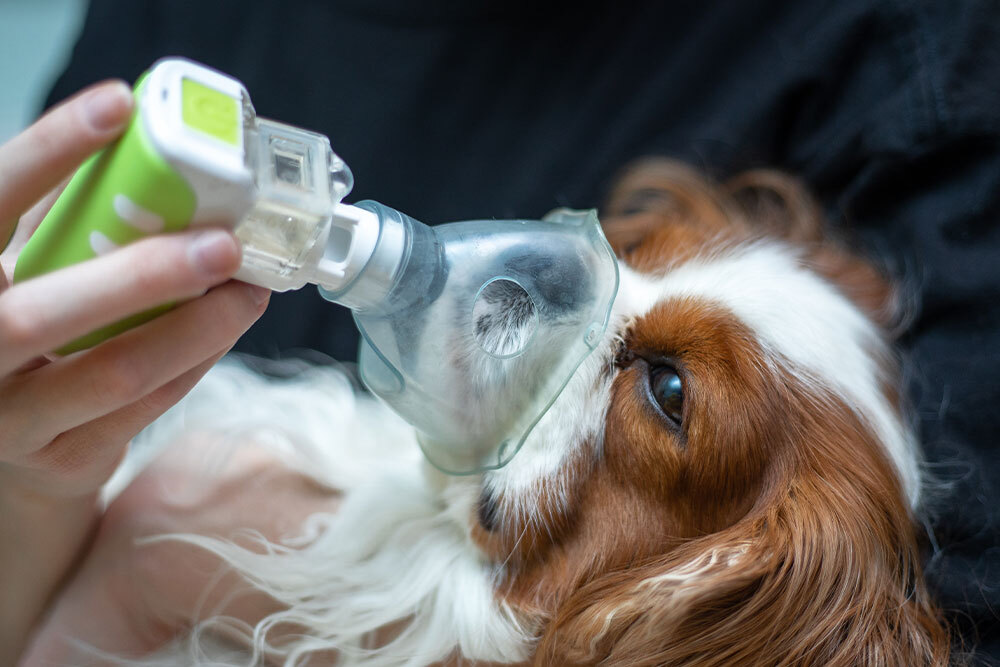
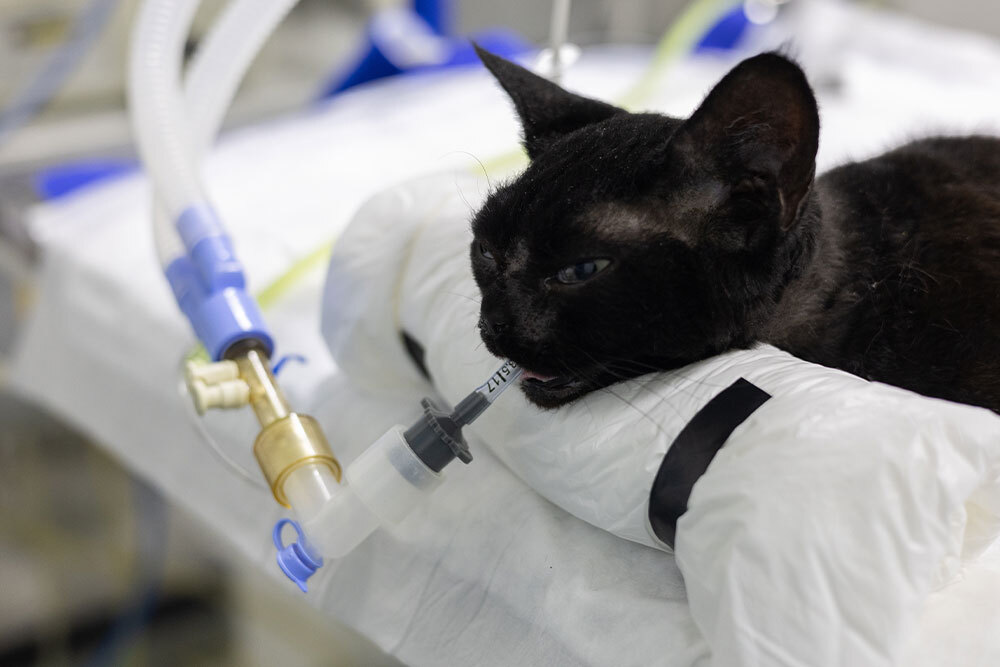
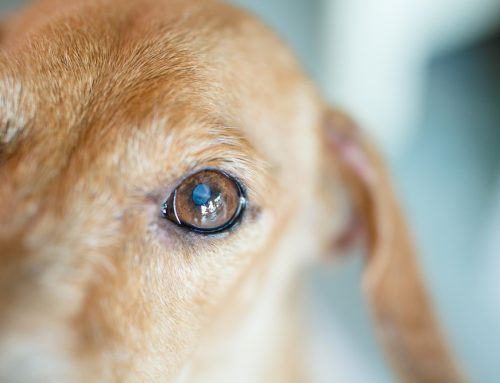

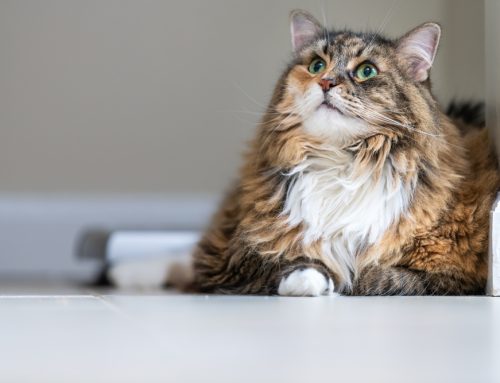
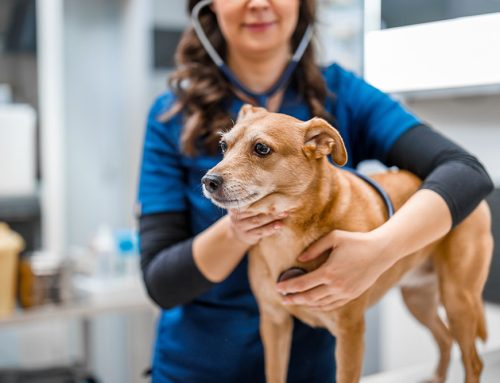
Leave A Comment